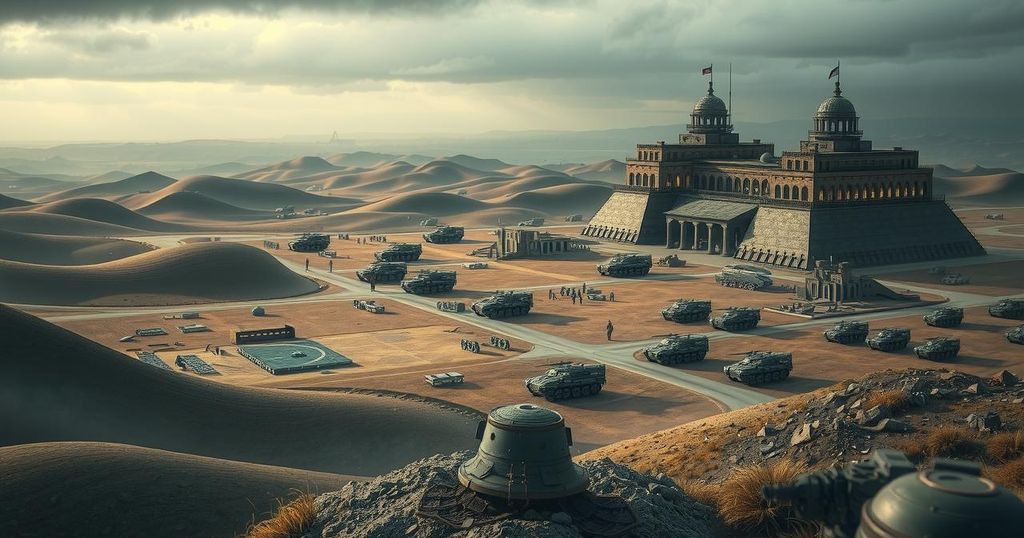Congo’s President Tshisekedi has called for mass military enlistment to combat M23 rebels, who are backed by Rwanda and have gained ground in Eastern Congo. The conflict, linked to ethnic and resource disputes, escalates fears of a broader regional war as neighbors urge dialogue and ceasefire. Historical grievances from Rwanda’s genocide further complicate the situation, requiring urgent diplomatic resolutions to advance peace efforts.
In response to escalating tensions with Rwanda-backed M23 rebels, President Félix Tshisekedi of the Democratic Republic of the Congo has urged the youth to enlist en masse in the military. The rebels have made significant territorial gains, threatening Eastern Congo’s largest city, Goma. Tshisekedi emphasized a commitment to both military action and peaceful dialogue to resolve the situation.
The M23 group, consisting of approximately 4,000 Rwandan troops, has intensified its activities in Eastern Congo, conflicting with over 100 armed factions vying for control in a region rich in minerals crucial to global technology. Following the rebels’ advances, residents of South Kivu province have expressed growing panic, leading to fears of conflict escalation.
Regional leaders have convened to discuss the crisis, advocating for a ceasefire and urging dialogue between the Congolese government and M23 rebels. Notably, Tshisekedi did not attend this vital summit, raising concerns about his government’s engagement with regional call for peace amidst an increasingly volatile situation characterized by conflicting reports and military movements.
The conflict’s roots trace back to historical ethnic grievances linked to Rwanda’s 1994 genocide, with M23 claiming to protect ethnic Tutsis in Congo. Observers indicate that compared to 2012, the likelihood of M23 retreating is slim, reflecting a deeply entrenched rivalry over control of mineral wealth and failed diplomatic efforts, according to experts for the Crisis Group.
The ongoing conflict in Eastern Congo, particularly involving the M23 rebels, is underscored by tensions stemming from historical ethnic conflicts and resource control disputes. With Rwanda’s involvement in supporting M23, the situation poses significant risks of further regional instability. The region’s vast mineral resources attract numerous armed factions, complicating peace efforts and creating humanitarian crises for millions displaced by the violence. International leaders and organizations have expressed concerns about the deteriorating safety and security situation, urging immediate ceasefire negotiations while emphasizing the importance of adequate support for peacekeeping missions. The ongoing dynamics illustrate the fragile political landscape and the dire consequences of continued hostilities between countries and armed groups.
In summary, the situation in Eastern Congo represents a complex interplay of military aggression, historical grievances, and international diplomacy. With President Tshisekedi’s call for military enlistment in the face of rebellion, tensions with Rwanda are expected to persist unless impactful dialogues materialize. The broader implications of the conflict underscore the critical need for equitable resource management and sustainable regional peace, highlighting past failures in mediation efforts and the necessity for renewed commitment to resolving underlying tensions.
Original Source: apnews.com






